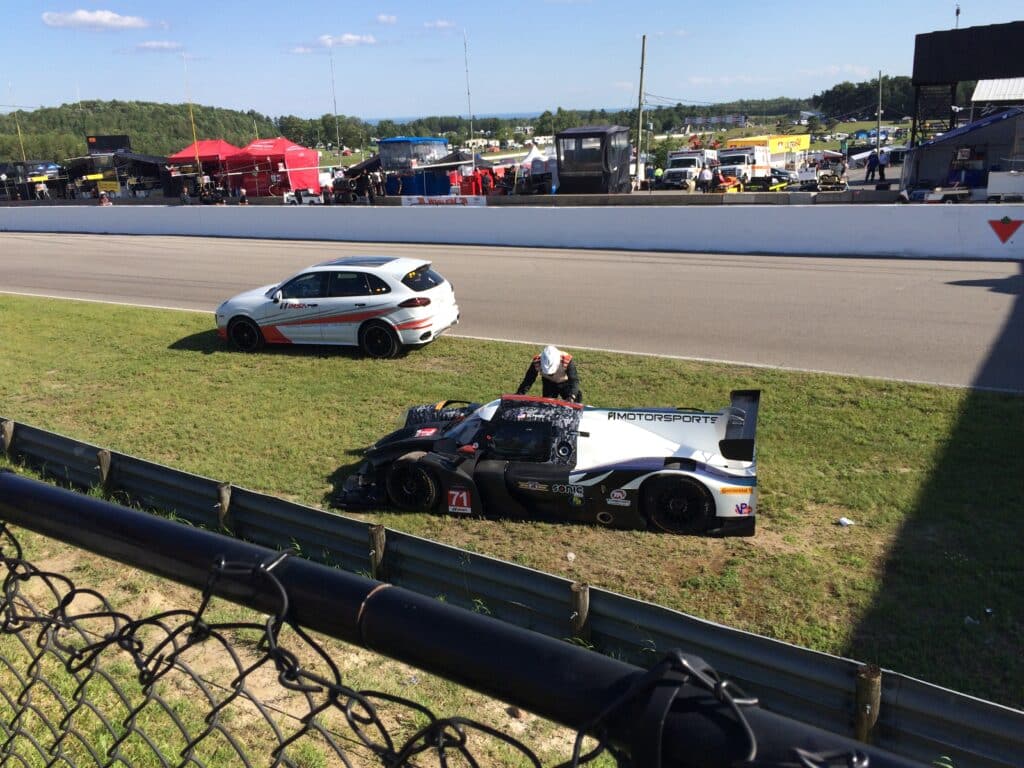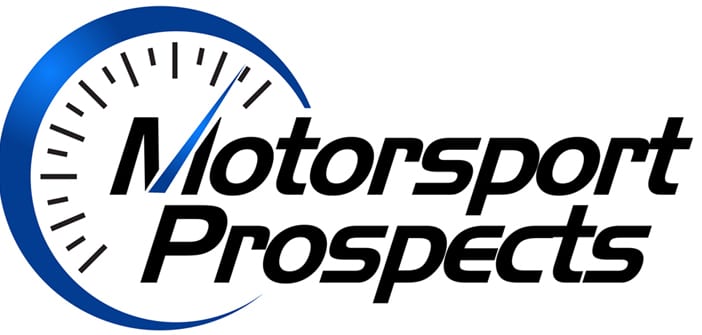
Motorsport is expensive. It might seem like an obvious statement if you are even remotely involved in the sport but how those expenses are generated is sometimes a bit of a mystery to those new to the sport. There is a vague understanding that there is the cost of series registration, payments to the team for the use of a car, crew, supplies and facilities. Coaching and fitness expenses. There are also the costs of getting to and from a race and food and accommodations while at the track, but the issue of crash damage is often neglected or severely underestimated by the young racing driver. Too many times I have seen a young driver start off the season full of hope and enthusiasm only to find out that an early season crash (or two) exhausts their racing budget causing them to pull out of the season and in some cases, the sport entirely.
In order to get informed recommendations about motorsport insurance I spoke with Peter Lowndes-Burt, Director of Sports Alive Ltd, a full-service marketing and insurance company and Mark Taylor, Senior Broker at Shepherd Compello, an independent, family-owned Lloyd’s of London Insurance Broker & Coverholder. Both Peter and Mark have extensive motorsport insurance experience and I am appreciative of the time they both took with me to put this article together.
I asked Mark Taylor to explain what insurance actually is:
Insurance is a mechanism for the protection of people against loss, damage or injury, and any costs associated with unforeseen events. It is a pooling mechanism, generally defined as a method of spreading the risk of loss so that the contributions of the many meet the losses of the few.
Those who are likely to suffer a loss may choose to buy insurance and pay a premium. The premium and any relevant tax is collected by the Broker and passed on to the Insurer. This money is then used to pay any claims that may occur.
Here then are 8 facts about motorsport insurance all racing driver needs to know. Whether you are just starting out, are a gentleman driver or your affairs are managed by an agent or management company, how you are insured, who you are insured with and what you are insured for are extremely important so keep in mind these 8 points and don’t be shy to ask questions.
- On Track Insurance is Not Compulsory but is Necessary
While it may seem strange, insurance is not actually compulsory but as Mark Taylor points out “it is accepted that there is no liability between participants out on track, so even if someone else crashes into you and it was their fault, you can’t claim from them, you are responsible for the cost of your repairs.”
Even though it is not technically compulsory, it should be purchased. As Peter Lowndes-Burt advises “Motorsport by its very nature has a risk element to it, not only are you on the edge in terms of your pushing your own performance but also there are other people on track doing the same. It offers peace of mind that in the event of an incident where the car is damaged you are secure in the knowledge that the insurance will pay for the repairs.”
- There are Numerous Types of Coverage Available
Types of coverage can be an article in and of itself. According to Peter “There is damage to the car and personal injury which are the main ones. Other cover would include storage and transit and if the activity is company-related things such as employer’s liability, buildings and contents and directors cover.
Mark also points out that there are other forms of coverage available “In addition to the on-track accident damage cover as Peter pointed out, drivers can also buy personal accident, medical repatriation and public liability insurances.”
- Crash Damage is Similar to Your Personal Home or Car Insurance
“Each policy will have an excess similar to your house or road car insurance. When a crash happens if the damage repair is more than the excess then the insurance will pay the difference. For example, if the excess is £2000 and the damage caused is £10,000 then the insurance will pay out £8,000.” While these are just guidelines as Peter acknowledges, they are a good illustration to how the process works.
Adds Mark, “If you have an accident you can submit a claim, send in your evidence including any photographs of the damaged parts and your repair invoice. The Loss Adjuster will review each claim and negotiate a settlement which will be followed by their authority to carry out the repairs.”
- Do Your Research When Deciding on a Broker
Both Mark and Peter emphasize the importance of research when selecting a broker. You can search online, get recommendations and generally do your research to make sure that you are getting coverage from a reputable broker and company. The Services section of Motorsport Prospects also has listings of Insurance companies that specialize in motorsport insurance including both Shepherd Compello and Sports Alive Ltd.

- Make Sure Your Racing Budget Properly Incorporates the Cost of Insurance
As Mark points out “Insurance is a market and therefore the client has the freedom to find the best product that suits their needs. The key priority is to ensure you have the correct cover appropriate for the risk. You should always be honest and declare all known facts, speak to your Broker to determine you understand the cover being offered and read the small print which should be pointed out to clients.”
Also, Peter adds “Different championships have different costs related to the on-track damage cover, also the driver claims history and experience is a factor in quoting. Therefore, it is best to get quotes and decide on the level of cover that you would be secure with and then work out budgets following on from this.”
- Keep in Mind the Differences Between Racing Nationally vs Racing Internationally
But what about the differences if you race locally or internationally? According to Peter “In fairness there are no real differences other than you may want to consider having the cars insured for transit purposes when racing abroad. Another factor to consider would be for repatriation of the car or even the driver in the event of an accident.”
Mark also suggests that the level of competition could be a factor. “Another thing to keep in mind is that the rates tend to be higher the greater the level of competition.”
- Make Sure You are Clear on Who Pays for Insurance
Sometimes when signing a contract with a team, the driver (and their family) are not clear on who is going to pay for the actual insurance and what it actually covers. As Mark points out
“The owner of the vehicle tends to be the person paying for the insurance and more often than not, this is the team. Occasionally the responsibility to pay for the policy lands with the driver and their sponsors.
On Track insurance covers damage to the vehicle following an on-track accident that’s either by collision with other competitors or simply losing control and hitting the barriers, etc. However, this insurance does not cover mechanical (non- accident) such as a gearbox or engine failure due to mishandling or over revving. Nor would the policy pay should the driver cause damage by deliberately cutting the corners on the track.”
- Make Sure You are Getting the Proper Coverage
Finally, make sure you are getting the proper type of coverage.
Peter: “It is important to know what you want in terms of cover, know the value of the car and how much it actually costs to make repairs. Don’t forget it is not just the parts that cost money but also the labour to strip down a car and put it back together. It is important to make sure you are properly covered with a reputable motorsport specialist who can help and advise as to what cover will suit your requirements.”
Mark: “Do your homework and research, get two or three quotes, do not always go for the cheapest as you may find it will cost you if you come to make a claim. Read the small print and speak to your fellow competitors about their experiences.”
While not the most exciting topic when it comes to racing, motorsport insurance is in fact critical, not only to your health and peace of mind but the lack of proper coverage could play an important role in whether you can complete a season or even make motorsport a career. Research your options, get advice from reputable people and make the right choice now so you won’t literally pay for it later.
